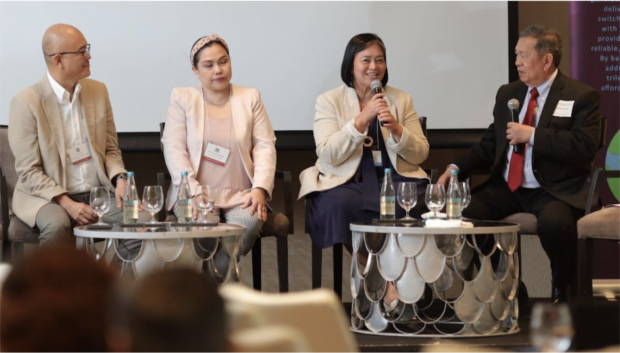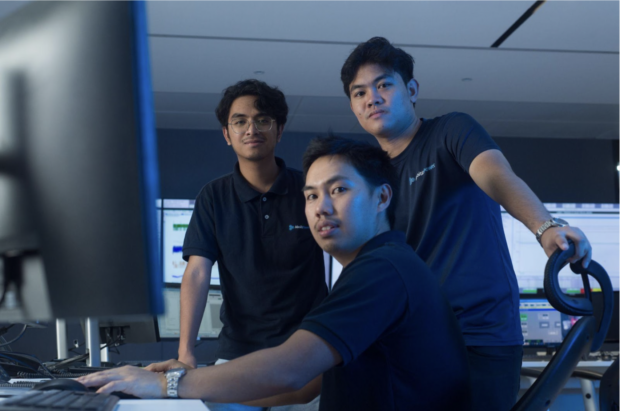A skilled workforce — a critical component of PH energy transition
Amidst the Philippine energy transition, Aboitiz Power Corporation (AboitizPower) recognized the growing scarcity of skilled power industry workers and, hence, the necessity of developing a workforce that can adapt and willingly carry the important task of ensuring energy security, affordability, and sustainability for today’s and tomorrow’s Filipinos.
“There has to be a workforce now and in the future that will keep our energy system functioning and serve the needs of our country,” said AboitizPower Chief People Officer MaLu Inofre. “However, among our most difficult challenges is building a skilled talent pipeline that can effectively adjust and work with the fast-paced transformation within the industry’s energy mix, digital systems, and regulations.”
“It has become exceedingly vital to ensure that workforce skills align with the changes of the times,” she further explained. “In the same way, attracting talent in a competitive global market is crucial to a sustainable, efficient, and innovative Philippine power sector that meets our country’s growing energy demands and sustainability objectives.”

In a panel discussion, AboitizPower Chief People Officer MaLu Inofre (2nd from right) said that the energy industry must come together to craft and implement programs that strengthen the talent pipeline for the Philippine power industry.
Inofre made her remarks during the first Philippine Power Industry HR Forum at Shangri-La The Fort, Taguig City. The event was presented by the American Chamber of Commerce of the Philippines, Inc. (AmCham) in partnership with AboitizPower.
In the Philippines, the Department of Labor and Employment (DOLE) said that an estimated one million skilled workers in engineering, architecture, and construction are lacking. They cited “Power Plant Maintenance Engineer” and “Maintenance/Powerplant Engineers” as among the hard-to-fill occupations in the country. This can be due to a lack of qualified applicants or brain drain (or when better opportunities abroad are taken advantage of by skilled locals).
“Between 2016 and 2021, the employment in the power industry declined by 15,444 individuals,” said DOLE Bureau of Local Employment Director Patrick P. Patriwirawan Jr. during the same event. “The Philippines saw an increase in the employment in the renewable energy industry last year but could have employed more if not for the delays caused by the Covid-19 pandemic on various project developments in the sector.”
Inofre added that a major factor influencing the labor shortage is the shift in the type of skills sought by employers, especially as the sector tries to balance the entry of renewable energy whilst maintaining traditional energy systems.
“Knowing this, upskilling will be key to facilitating a just transition for those who will be affected by the transition to a greener economy, as well as the new generation of workers. It is imperative that we successfully cultivate both thermal and renewable energy, so that we can ensure reliable and affordable energy supply for the country,” she said.
Meralco Power Academy Program Management Director Engr. Marc Lester Malibiran explained that, on top of upskilling the workforce, the industry should also help develop interest for the sector, especially in the youth.
“The Philippines boasts a young and vibrant population, brimming with innovative potential. By investing in talent development, we tap into this dynamic workforce, harnessing their fresh ideas and energy,” he said. “Unfortunately, we are seeing a decline in both take-up and completion of STEM (science, technology, engineering and mathematics), averaging only a 21% completion [rate].”
“Young Filipinos avoid STEM as it is seen to be an intimidating course of study. This is important to know as this signals us to develop programs that remove this preconceived notion,” he added.

Young academic and professional achievers were recruited and trained by AboitizPower to operate, monitor, and control the company’s National Operations Control Center, which oversees over 20 renewable energy facilities spread across the country all from one central location.
The Philippine Power Industry HR Forum served as an avenue for human resources professionals in the Philippine power industry to connect, collaborate, and communicate ideas, knowledge, and best practices.
Sentiments from the breakout sessions revealed that skills and competency gaps or mismatch, a limited external talent pool, and difficulty in retaining talent due to global and local competition are the most cited challenges in the human resources field of the Philippine energy sector.
A panel discussion moderated by Atty. Jose Layug Jr. of Divina Law saw Michael Page Regional Director & Country Head Albert Perez, Meralco Chief HR Officer Edgardo “Egay” Carasig, Philippine Independent Power Producers Association, Inc. (PIPPA) President Atty. Anne Estorco Montelibano, and ACEN Chief HR Officer John Philip Orbeta discuss the need to calibrate existing government programs to be more in sync with the needs of the energy industry. This includes building competencies within communities to turn locals into more competitive applicants.

AboitizPower encourages its team members to live up to the company’s purpose of “Transforming Energy for a Better World”, which entails delivering long-term equitable and sustainable value to the businesses and communities it serves and works with.
Meanwhile, another panel discussion moderated by AmCham Human Capital & Resources Committee Co-Chair Ernie Cecilia had Global Business Power Corporation VP – Human Resources Maria Luz Blanco-Uriarte, One Renewable Energy Enterprise, Inc. Founder & President Erel Narida, and AboitizPower’s Inofre talk about how retaining workers involves investing on their skills, ensuring talent mobility opportunities, and giving them a sense of purpose.
“The energy industry must create an acceptable, progressive plan to resolve the talent crisis. AboitizPower, for one, makes an effort to resolve the shortage of estimated skilled workers in our industry by maintaining academic-industry linkages with universities in the country, providing long-term scholarships, [and] establishing programs with TESDA that help promote electrical engineering skills at the grassroots level, among other initiatives,” Inofre said.
“Through similar initiatives, I believe we can successfully empower a community of like-minded individuals who work towards implementing human resource programs that strengthen the talent pipeline for the Philippine power industry,” she concluded.
ADVT